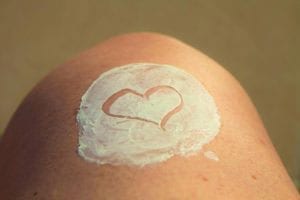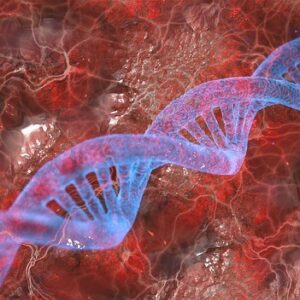On “The Golden Bachelor,” 60-year-old Faith Martin started the season with a bang. She arrived on a motorcycle (badass!) before earning the First Impression rose, which my other Bachelor Nation counterparts know is a Big. Deal. Though Martin was sent home after hometown dates, and Golden Bachelor Gerry Turner eventually chose and married his leading lady Theresa Nist, Martin has maintained a connection with fans and frequently shares insights into her life: including her basal cell carcinoma diagnosis.
Reporting from SurvivorNet shared on social media that she had been diagnosed with basal cell carcinoma on her nose. Martin underwent surgery to remove the cancer but will require additional surgery to close the hole on her nose. As she shared the diagnosis with her fans, she reinforced the importance of sunscreen. Basal cell carcinomas tend to grow on areas of the skin that are most highly exposed to the sun, such as the face, head, and neck.
If you’re looking to minimize sun exposure and reduce the risk of basal cell carcinoma, consider wearing a wide-brimmed hat and sunglasses, getting a yearly skin check from your dermatologist, avoiding tanning beds, wearing sunscreen all year, and avoiding UV exposure during 10am-2pm.
About Basal Cell Carcinoma (BCC)
Basal cell carcinoma is a common form of skin cancer that forms in basal cells, a type of cell that replaces dying skin cells with new ones. Being older in age, undergoing radiation treatment, being immune-suppressed, and having fair skin all increase the risk of developing this cancer. While basal cell carcinoma most often forms on sun-exposed areas of the skin, it may appear in other areas in rarer cases.
Basal cell carcinomas tend to grow slowly, making them easier to identify and treat. Treatments for this cancer can include surgical excision, radiation, topical treatments, freezing, curettage and electrodesiccation, photodynamic therapy, or the Mohs surgery. In more severe cases, or if the cancer has spread, chemotherapy may be used. If you have basal cell carcinoma, please speak with your doctor about the best form of treatment.
Basal cell carcinomas can appear differently from one person to the neck. When lesions appear, they may look like:
- An open sore that does not heal
- A shiny, skin-colored bump that may bleed or scar
- Brown, black, or blue lesions with a slightly raised and/or translucent border
- A scaly, flat patch with a raised edge that grows in size
- Waxy, white lesions that resemble a scar without a defined border.
The Skin Cancer Foundation offers photos of what this cancer may look like.








